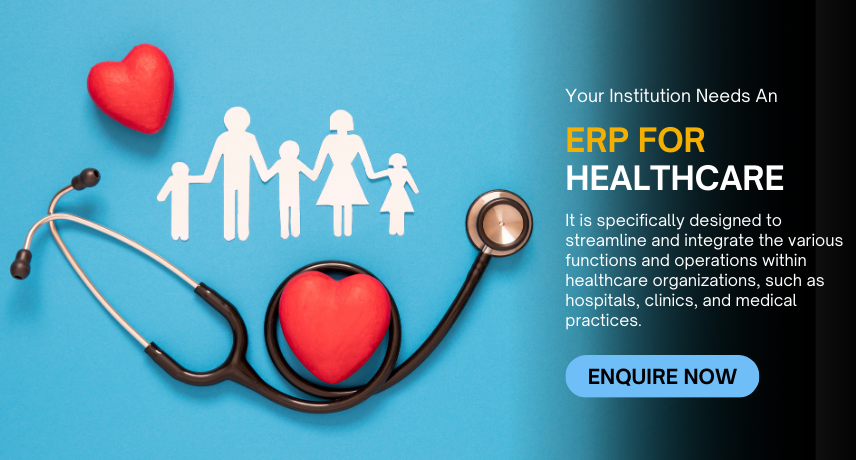Enquiry Form
What is an ERP For Healthcare?
ERP for Healthcare refers to Enterprise Resource Planning (ERP) systems specifically designed to streamline and integrate the various functions and operations within healthcare organizations, such as hospitals, clinics, and medical practices. These systems help manage core business processes such as:
- Patient Management: Handling patient information, appointments, and medical history.
- Financial Management: Managing billing, accounting, and insurance claims.
- Human Resources: Managing employee records, payroll, and scheduling.
- Inventory Management: Tracking medical supplies, pharmaceuticals, and equipment.
- Compliance and Reporting: Ensuring the organization meets healthcare regulations and standards.
What are the Best Features of ERP For Healthcare?
Here Are 15 Best Features Of ERP For Healthcare

Patient Management:
Centralized patient records, appointment scheduling, and medical history tracking.
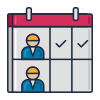
Electronic Health Records (EHR) Integration:
Seamless access to patient data for accurate diagnosis and treatment.
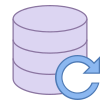
Billing & Invoicing:
Automated billing, insurance claims processing, and payment tracking.
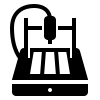
Inventory & Pharmacy Management:
Real-time tracking of medical supplies, drugs, and stock replenishment alerts.

Compliance & Regulatory Management:
Ensures adherence to healthcare regulations like HIPAA, GDPR, and NABH.

Laboratory Information System (LIS):
Manages lab tests, reports, and integration with diagnostic tools.

Human Resource Management (HRM):
Payroll, attendance tracking, shift scheduling, and performance evaluation.
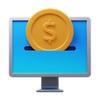
Financial Management:
Budgeting, expense tracking, and financial reporting for hospitals and clinics.

Appointment & Scheduling System:
Online booking, doctor availability management, and automated reminders.

Telemedicine & Remote Consultation:
Virtual patient consultations with secure video conferencing integration.

Supply Chain & Procurement:
Streamlined purchasing of medical equipment and vendor management.

Doctor & Staff Portal:
Role-based access for doctors, nurses, and administrative staff.

Analytics & Reporting:
Data-driven insights for patient care, hospital efficiency, and financial performance.

Mobile Access & Cloud Integration:
Secure, remote access to hospital ERP data via mobile and cloud-based platforms.
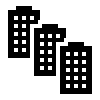
Emergency & Bed Management:
Real-time tracking of available beds and emergency room occupancy.
Benefits of ERP For Healthcare
- Improved Efficiency: Streamlines administrative processes and reduces manual tasks.
- Better Data Management: Centralizes patient data, making it easily accessible and secure.
- Enhanced Decision-Making: Provides real-time data and analytics for better strategic decisions.
- Cost Savings: Reduces operational costs by automating tasks and improving resource management.
- Regulatory Compliance: Ensures adherence to healthcare regulations like HIPAA and GDPR.
- Better Patient Care: Improves scheduling, billing, and service delivery, enhancing patient satisfaction.
- Scalability: Supports the growth of healthcare facilities by adapting to increasing patient volume and complexity.
For Which Industries Is an ERP For Healthcare Useful?
ERP (Enterprise Resource Planning) systems are widely used in various sectors, including healthcare. Below are five key industries that leverage ERP solutions for streamlined operations, along with the specific benefits they gain:

ERP systems help hospitals manage patient data, optimize workflows, and ensure compliance with healthcare regulations.
- Electronic Health Records (EHR) integration for seamless patient information access
- Inventory and supply chain management for medical equipment and pharmaceuticals
- Billing and insurance processing to reduce administrative burdens
- Staff scheduling and payroll management for efficient workforce planning
- Regulatory compliance tracking to meet healthcare standards

ERP solutions support pharmaceutical companies in managing production, regulatory compliance, and supply chains.
- Batch tracking and quality control to meet safety and regulatory standards
- Supply chain and inventory management for efficient distribution
- Research and development (R&D) tracking to accelerate drug discovery
- Compliance with FDA, GMP, and other regulations
- Automated financial management for cost tracking and budgeting

Medical device manufacturers rely on ERP systems for production, compliance, and distribution.
- Production planning and control to streamline manufacturing
- Real-time inventory tracking for raw materials and finished products
- Regulatory compliance management to adhere to FDA and ISO standards
- Quality assurance and defect tracking for product safety
- Supply chain and logistics optimization for global distribution

ERP solutions help health insurers manage policies, claims, and customer data efficiently.
- Claims processing automation to reduce paperwork and fraud
- Policy and premium management for customer convenience
- Customer relationship management (CRM) to improve service delivery
- Regulatory compliance monitoring for legal adherence
- Financial reporting and analytics for risk assessment and decision-making

ERP is crucial for companies that distribute medical supplies, ensuring efficiency in logistics and inventory management.
- Real-time stock monitoring to prevent shortages and overstocking
- Order tracking and automated replenishment to streamline operations
- Warehouse management systems (WMS) for optimized storage
- Supplier relationship management for smooth procurement
- Cost tracking and financial reporting for profitability analysis
How to Choose the Best ERP For Healthcare??
Choosing the best ERP for healthcare involves evaluating several key factors to ensure the system meets the unique needs of your healthcare organization. Here are steps to guide your decision-making process:

- Assess Your Requirements: Understand the specific needs of your healthcare facility.
- Key Features: Look for patient management, billing, inventory, HR, and compliance features.
- User-Friendliness: Ensure the ERP is easy to use for all staff and integrates well with existing systems.
- Customization & Scalability: Choose an ERP that adapts to your needs and grows with your organization.
- Vendor Reputation & Support: Select a vendor with a proven track record and strong customer support.
- Cost & ROI: Consider both upfront and ongoing costs, along with long-term value and efficiency gains.
- Cloud vs. On-Premise: Decide between cloud-based or on-premise solutions based on your needs for control and security.
ERP for Healthcare Industry | Digitize & Optimize Hospital Operations
Upgrade your healthcare facility with a powerful ERP solution. Manage patients, inventory, billing, HR, and compliance with an integrated ERP for hospitals and clinics.
Latest News
Stay updated with latest industry information
